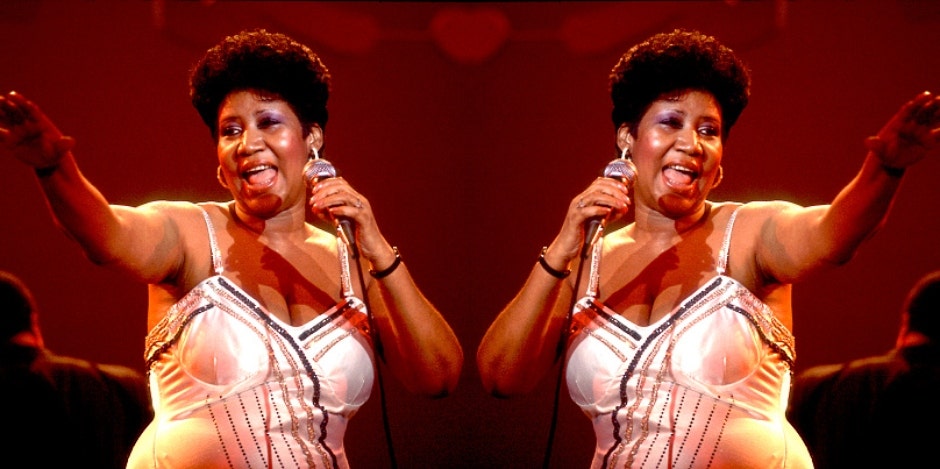The Incredibly Important Reason Aretha Franklin Always Carried Her Purse On Stage
Her purse was always in her sight.
 Getty Images
Getty Images When Aretha Franklin stepped on stage you immediately noticed the strength she exuded, her celebrated voice, and her purse. Yes, the Queen of Soul typically performed with her handbag on stage.
Franklin died from advanced pancreatic cancer at the age of 76. She was the first woman to ever have 100 career titles on Billboard's Hot R&B/Hip-Hop Songs chart and won 18 Grammy Awards over the course of her time as an artist. She even sang at former president Barack Obama's inauguration in 2009 and at Martin Luther King, Jr,'s funeral in 1968.
But she was known for one other thing — a quirk, you could call it. She always kept her purse with her during a performance because she demanded she be paid in cash.
"On the counter in front of her, next to her makeup mirror and hairbrush, were small stacks of hundred-dollar bills. She collects on the spot or she does not sing," The New Yorker's David Remnick documented in 2016 after meeting with Franklin backstage at a show. "The cash goes into her handbag and the handbag either stays with her security team or goes out onstage and resides, within eyeshot, on the piano."
It was something Franklin did throughout her entire career.
"The purse thing has a long history: she keeps her purse with her at all times," Rickey Minor, musical director of the Kennedy Center Honors ceremony, said. "She’s got her money, she’s ready to move, to go wherever she needs to be. How many times do you have to leave your purse in the dressing room and have it go missing before you say, 'I worked hard for this money — I’m going to put my purse right here where I can see it?'"
The famed singer and songwriter watched other black artists get underpaid refused to be ripped off for her talents. She knew her worth and was determined to get what she deserved and nothing less.
“It’s the era she grew up in—she saw so many people, like Ray Charles and B. B. King, get ripped off,” television host, author, and close friend of Franklin, Tavis Smiley, explained to Remnick. “There is the sense in her very often that people are out to harm you. And she won’t have it. You are not going to disrespect her.”
Franklin was rarely seen without her handbag, on or off stage. It's no wonder she fancied designer bags and the latest purse trends.
Glenn Weiss, who worked with Franklin on the 2015 Kennedy Center honors, also noticed her close proximity to her handbag at all times.
"She always walks onstage with her purse," he said. "When we were in rehearsals, she walks out and puts it on the piano. When she walks downstage, she picks it up and puts it on the floor."
A 2010 contract revealed that Franklin was always to be paid $25,000 in cash by her promoters. According to the contract, the rest of the balance owed to her could be presented in the form of a check but the cash had to be handed directly to Franklin on the night of the show.
The act of being paid in cash got Franklin into quite a bit of trouble with the IRS over the years. She used it to pay her staff to avoid taxes, Time reports.
“She deducted no taxes and made no records. I’d beg her to implement some system of documentation, but she refused,” talent agent Dick Alen said in the 2014 book Respect: The Life of Aretha Franklin. “I knew that eventually there’d be hell to pay from the IRS.”
He was right. The IRS questioned her tax deduction in 1993 and she got in deep with the tax agency but her policy on cash stuck with her, and so did her purse.
The Queen, who was paid much of her dues in cash, had a net worth of about $80 million when she died.
Sarah Gangraw is a travel-addicted cat lady who lives on black coffee and cheese. She has a degree in journalism and writes about all things news, entertainment and crime. You can follow her on Instagram and Twitter — she's occasionally funny.
